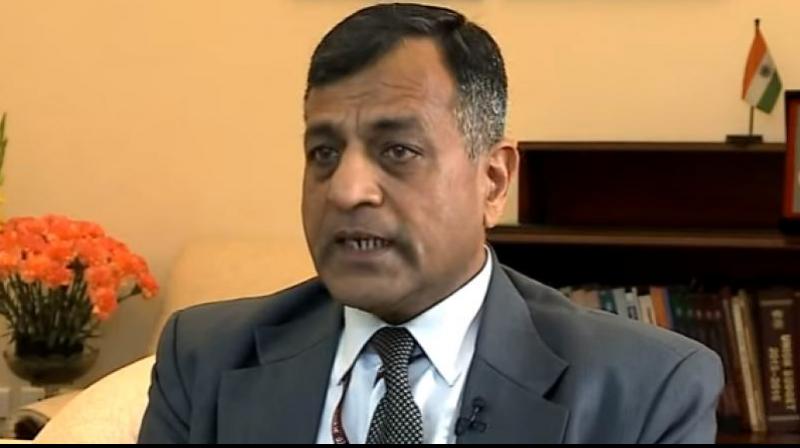India concerned about NPAs of Indian banks as well: Lavasa
Cabinet this week approved promulgation of an ordinance to amend the Banking Regulation Act for resolution of the NPA crisis.

New York: An amendment to the Banking Regulation Act will create an environment that will make it possible for banks to address some of the stressed assets, Finance Secretary Ashok Lavasa has said.
"The government has been concerned about the Non- Performing Assets (NPAs) of the banks as well. Recently the government came up with an amendment in the Banking Regulation Act which empowers the central government and the Reserve Bank of India to make institutional arrangements and the entire system more effective in dealing with the NPAs," Lavasa told PTI yesterday.
He stressed that the government has sent a "very clear" message both to the banks as well as the borrowers that "there should be responsible lending and there has to be responsible utilisation of credit which is borrowed".
The Cabinet this week approved promulgation of an ordinance to amend the Banking Regulation Act for resolution of the NPA crisis. Lavasa, who is in the US to attend a global investors conference, said with the amendment to the Banking Regulation Act, "we feel that in this new environment, it will be possible for the banks to find resolutions of some of the stressed assets".
"Ultimately of course they will have to operate within the financing documents. So this will mean that promoters will also have to come forward and actively participate," he added.
Lavasa outlined that the financing documents which banks sign with borrowers when the loans are given deal with provisions that pertain to several eventualities. He said whenever a settlement is done, it is done within the parameters of those financing documents - whether it entails rescheduling instalments, infusing additional equity or capital or converting interests into term loan or undertaking hair cuts.
"So all that is part of the settlement process. I think bankers will have to take a decision on a case-by-case basis on what is to be done. This will also include the borrowers themselves having to contribute in order to make that loan viable" or stepping out of that loan, he said.
On whether there is appetite for the stressed assets, Lavasa said people look for investment opportunities and this is considered to be one of the ways in which many investors like to enter into projects.
"But that eventuality arises when the original borrowers want to step out and the situation is such that the bank will look for replacements," Lavasa added that whether a person is a willful defaulter has to be determined by the banks.
"Those defaulters who are willing to use this as an opportunity to make their project viable again, they will of course be treated differently. The banks will have to work out a package of rehabilitating these loans and that rehabilitation package contains several components including the right to replace the original borrower," he said.
On concerns of a protectionist wave sweeping developed nations, particularly in the US, Lavasa said any policy which restricts movement of people "certainly does not help in the growth of global trade".
"In the long run, countries will have to take a very hard look whether these (protectionist) measures are sustainable because the interdependence of countries and economies is so much today that this will be done at the cost of affecting their own interest as well. These decisions are to be very carefully seen," he said.
While noting that every country has a duty towards its industry and so nations will take measures to protect its interests, he said protectionism necessarily does not mean restricting interaction or dealings with other countries.
"There are ways in which conducive environment can be created for industry to grow and prosper without curtailing its global activities," he said.

